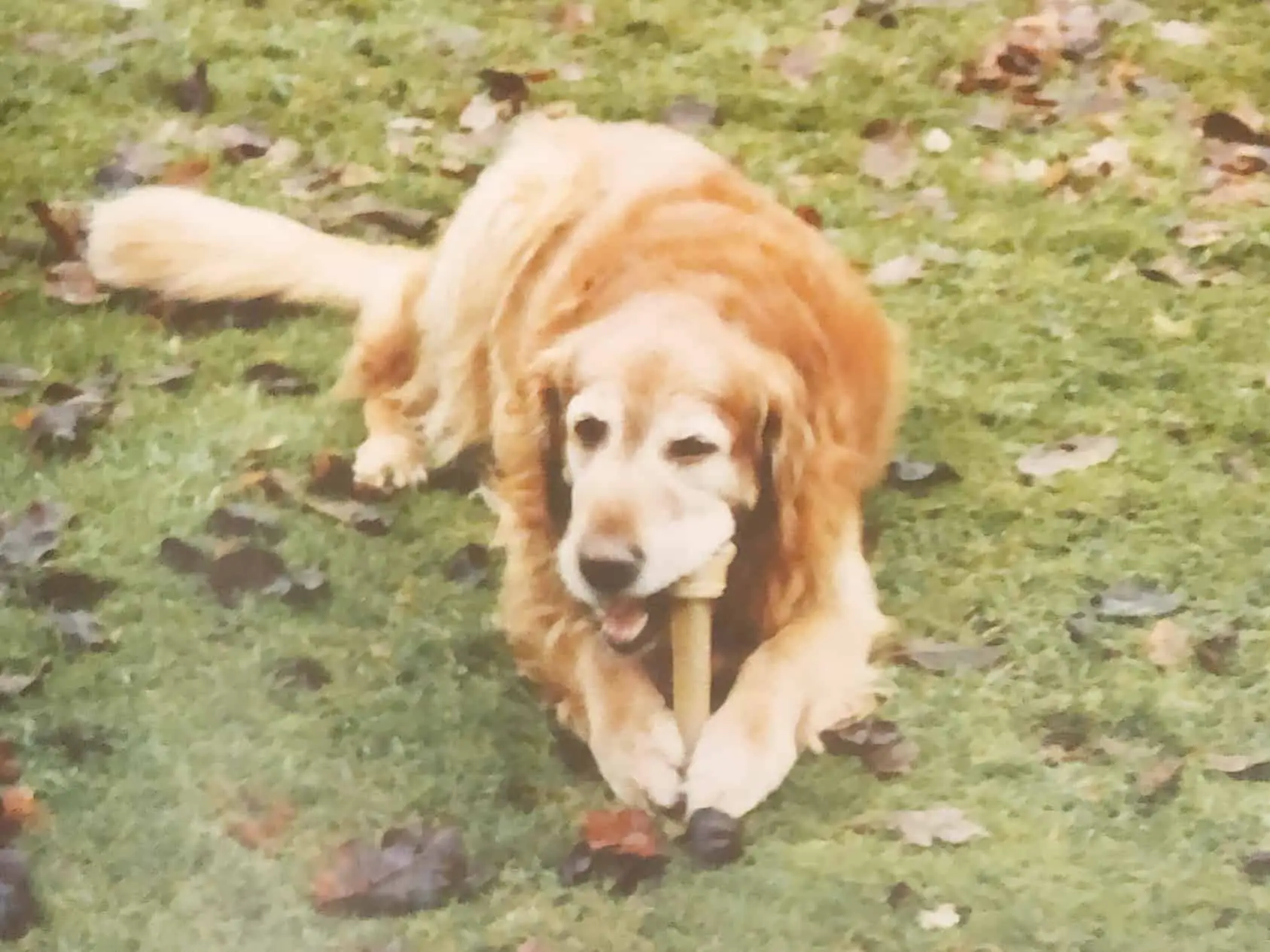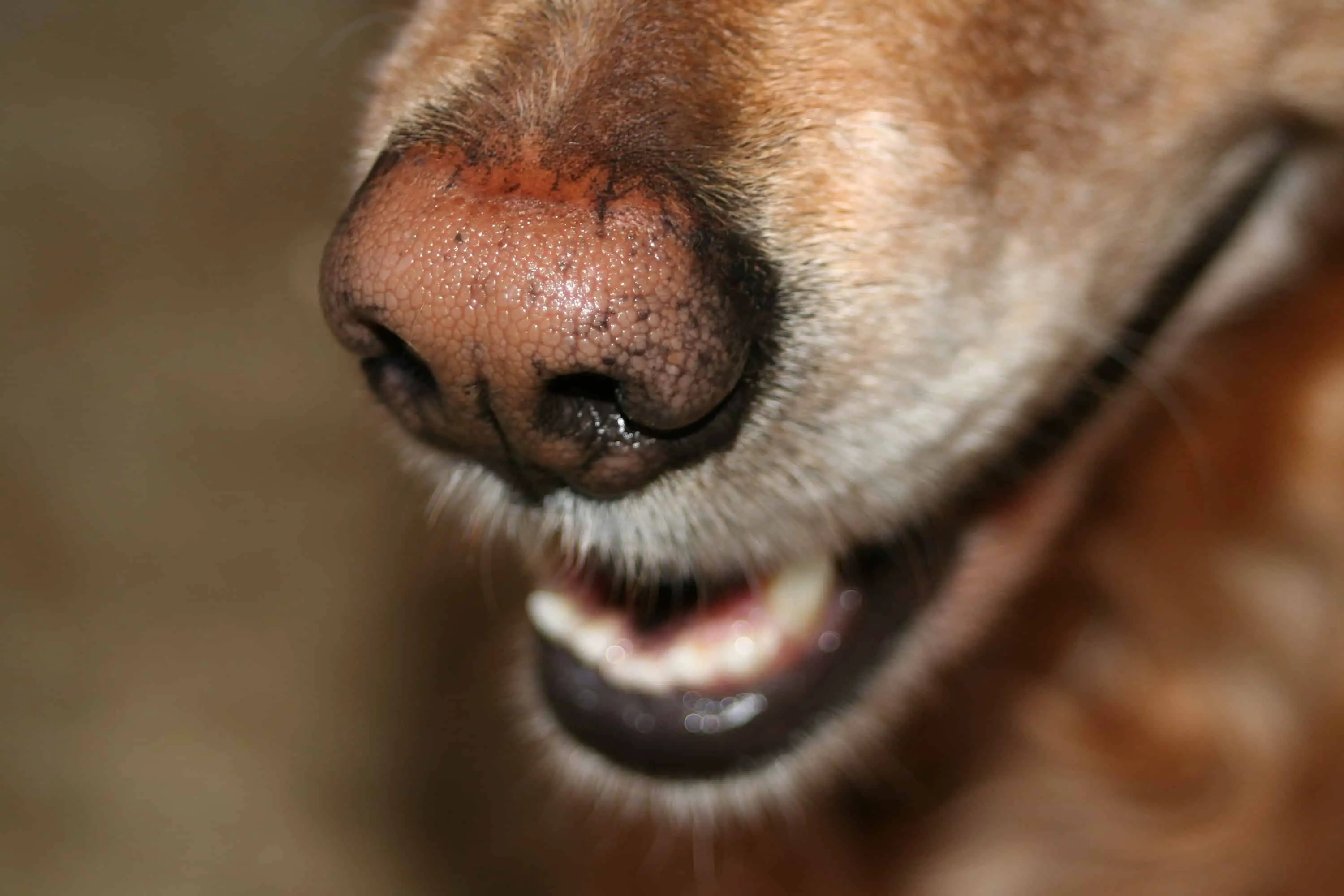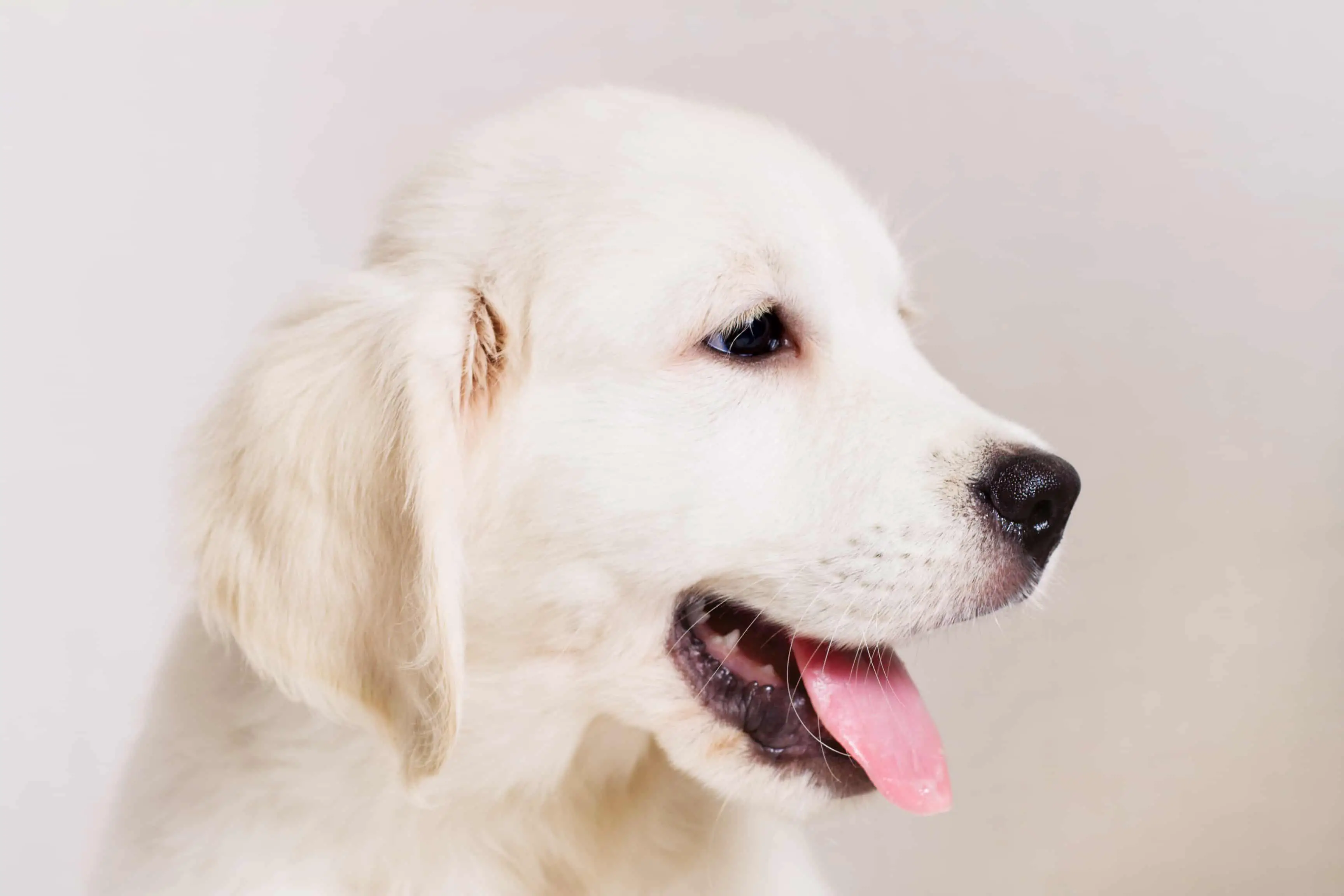Every puppy owner who’s gone through the teething process can remember those tiny needle teeth. In fact, it’s almost impossible to forget that little creature snapping at any hands that dare come within reach! Sure, it can be painful, but the tiny puppy is so cute we often ignore these little side effects of growth. After all, our puppies are only trying to relieve the discomfort of growth.
Before showing you what we think are the best puppy products, let’s discuss the different categories of teething products and what puppy teething really is.
What is Puppy Teething Exactly?
When a puppy’s baby teeth first start coming in, he’ll only be a little over two weeks old and still with his mother, nursing. Many people adopt their puppies at eight weeks, although you ideally shouldn’t separate a puppy from his mother or litter prior to that.
It isn’t until a little after 12 weeks (12-16) that your pup will begin ‘teething’, or replacing those baby teeth with adult ones. A puppy is going to want to chew on anything to help relieve the pressure and satisfy his urges. Not even the paint on your walls is safe! Puppy teething is a natural process, and shouldn’t be abnormally painful.
How can we help the process along, and what exactly are the best puppy teething products out there on the market today? It certainly isn’t our hands! Below, we’ll discuss several separate products, and list the pros and cons of each.
Thick Rope Toys
The American Kennel Club recommends thick rope toys for teething puppies, but place a heavy emphasis on quality. It’s very important that a puppy isn’t capable of tearing off any rope fibers from the toy, which they would be likely to swallow. Though ‘tug of war’ plays on a dog’s natural instincts, this is also a game you don’t want to play with a teething puppy for fear of damaging young teeth.
It is also recommended that you soak the rope toy in water and freeze it overnight to create a soothing effect, but you have to be sure your puppy won’t be able to break off any of the frozen fibers.
Dental Wipes
Dental wipes are another alternative for dog owners who have trouble brushing their dog’s teeth, or simply want to try something new. These are soft and disposable, designed specifically to offer another gentle cleaning method.
However, it’s best not to try and manipulate your puppy’s new teeth by yourself. Not only could you cause unintentional injury to the delicate area, very few puppies aren’t going to try to snatch the wipe from you, chomping it up themselves.
If you do choose to begin brushing your puppies teeth, make sure you invest in specially formulated toothpaste!
Do Sticks Make Good Chew Toys?
Whereas it is natural for dogs to chew on sticks, even in the wild, they can break apart easily. This creates a potential choking hazard for adults, let alone the more vulnerable teething puppies- much more prone to swallow things they put in their mouths.
In fact, many credible sources will tell you sticks are among the top choking hazards for dogs, right behind tennis balls (creating a hazard when ripped apart) and cooked bones or chicken bones.
Sure, it is rare for a dog to choke and die on a stick or parts of a tennis ball and the vast majority of dogs are fine, but this has happened. Though dogs may enjoy it, this is an unnecessary risk you don’t need to take just to keep your pet happy. There are other toys that work just as well and don’t create a potential danger.

Old Donovan loved sticks and would chew through your floors if not kept under attention
Bones: What Is Ok?
When we think of a chewing dog, the first thing we think of is usually bones. It is an automatic stereotype, and dogs in the wild love bones just as much as a dog at home. In fact, the act is natural for wild dogs and wolves.
BUT the bones from wild animals are never cooked. When you cook a bone, it becomes softer, more easily broken and creates not only a choking hazard but can also create multiple dangers throughout the digestive tract once swallowed.
Of course you always want to avoid any bones that are brittle or hollow, like chicken bones. These can easily splinter, and those splinters can poke holes anywhere along your pup’s intestines if he manages not to choke on them, requiring expensive surgery.
All that being said, the kind of bone you would offer a dog would be hard on a puppy’s teeth, allowing no chewy ‘give’. Something like the ‘Puppy Ring Bone’ by Nylabone would be a much better idea.
What About Rawhides?
Rawhides are very popular, but also another item that can cause choking hazards. In fact, these are pretty controversial. If you insist on giving your puppy a rawhide, try to provide one that comes in one big piece, rather than a rawhide that is made of small pieces which can break off.
That being said, these are considered safe for adults with the owner’s supervision. For puppies, it’s best not to even take the risk at all. Remember, a puppy is prone to try and swallow more than he should.
Teething Gel: Does it Work?
We know they have it for babies, but few people knew teething gel was available for puppies also. Believe it or not, products like this do exist, claiming to ease the pain of teething and decrease the amount of chewing a puppy will need to do.
BUT- chewing is both natural and very instinctual. That being said, teething normally won’t cause ‘unbearable’ pain. In the rare case teething does cause immense pain on your puppy, leading him to wail all of the time, there is likely an underlying cause at work and you should get an examination from a licensed veterinarian, by no means simply waiting it out. It’s a good idea to discuss the teething process with your veterinarian even if you think there might be a problem.
You’re probably going to see a veterinarian anyway, at least for vaccinations if not regular checkups, so you can ask these questions then.
Best Puppy Teething Products
Kong Puppy
Very few dog owners haven’t heard of the Kong brand of dog toys, and their signature honeycomb toy. Not only are these made of very strong, durable rubber, they are all but indestructible in the paws of the right breed they were made for. For example, even the strongest chewers on earth would have a hard time destroying the largest Kongs.
Puppy Kongs are much smaller, however. Whereas puppies or small breeds won’t be able to destroy them, the bounceable rubber does provide a very entertaining distraction, and isn’t so hard it will damage a puppy’s teeth. You can also fill them with treats or food to increase their appeal, but be careful to avoid anything that presents a choking hazard!
Nylabone ‘Puppy Ring Bone’
Nylabone is also an Enormous name in dog toys, their signature bones made from a very tough material, also all but indestructible. Thankfully, like Kong brand, they have branched out to produce several different kinds of chew toys.
The ‘Puppy Ring Bone’ is one such item, made with a softer material specifically intended for teething puppies. The ‘bristles’ raised when your puppy chews are also meant to help clean your puppy’s teeth. In fact, the simple mechanical act of chewing will help prevent tartar buildup, although that rarely is a problem for dogs so young anyway.
Whereas it is recommended for puppies, this toy isn’t made for adult dogs or strong chewers. Unlike most other Nylabone items, this likely won’t stand up to much punishment. That is absolutely fine, however, since we are looking for puppy chew toys and not adult chew toys!
Kong Puppy Activity Ball
The Kong Activity Ball is another great toy designed specifically for puppies, made from soft rubber they claim helps soothe teeth and gums. Just like most other Kongs, this toy dispenses treats if you choose to add them, but is still entertaining if you don’t. It even comes with ‘ridges’ build into the sides of the toy that help your puppy grip the sides, unlike ‘Kong Puppy’ which is completely smooth.
Both Kong and Nylabone make several toys recommended for puppies.
Kong vs. Nylabone: Which is Better?
The two Kong toys listed here are made from soft yet durable rubber, meant to last. The Puppy Ring Bone made by Nylabone is made from a much softer and ‘chewier’ material, probably more soothing to a teething puppy. Nylabone also makes other ‘soft, chewy’ products ideal for a teething puppy.
However, whereas the Kong toys will likely last on to adolescence and perhaps even adulthood, the Nylabone items are specific for teething puppies and will likely break apart when given to a stronger dog, perhaps leading to the dog swallowing the pieces (which you don’t want).
- The American Kennel Club, one of the most credible organizations on Earth, recommends both brands for teething puppies!
- The AKC also recommends hard rubber toys, so the hard rubber of a Kong would be great! You can easily fill these toys with water and freeze the Kongs overnight, creating a wonderfully soothing effect in the morning!
Treats When Training
It’s a good idea to teach the command ‘leave it’ when it comes to puppies and toys, especially when you want to avoid those ‘tug of war’ matches. For this, food/treat rewards come in handy!
Many commercially made treats (Milk Bones, for example) are not exactly healthy. Treats like this can also create choking hazards when they break apart into sharp pieces, and aren’t good for puppies. Treats can also be high in sodium, which is something you want to avoid providing too much of.
So you’ve made sure the treats you are giving can’t create a choking hazard for your puppy. As long as you don’t go overboard, giving treats all of the time, these are very beneficial to enthusiastic training and reward based enforcement!
Chewing Behavior, Bite Inhibition, & Puppy Training
Bite Inhibition refers to an animal’s ability to control his bite pressure. This is considered an important part of puppy socialization.
A puppy normally first begins to learn how to control his bite pressure when playing with other littermates during those early weeks of life.
For example, when two puppies are playing and one chomps down a little too hard, the other will yelp and scurry away. Play stops for both pups, which is the last thing the biter actually wanted. In order to keep play going, the puppy learns not to bite down so hard next time.
If you watch two well socialized adults play-fighting, it might look very intimidating when one dog literally wraps his mouth around the other’s head. In reality, this dog doesn’t want to actually cause any harm, and is barely touching the other.
In some unfortunate circumstances, a puppy is separated from littermates far too early, before he can learn proper social skills. Though this particular puppy is susceptible to several other social problems throughout his life, a fully grown adult who hasn’t learned how to modulate his bite pressure, or the need to, can cause a lot of damage without intending to.
Soft Mouth Training
By mirroring puppy behavior, you can actually continue to train your puppy! If your pup accidentally bites you a little too hard, or misses the toy and bites your hand at all, simply yelp, back away and act injured. Your puppy wants the play to keep going, so will avoid touching your skin or biting so hard next time.
You will in fact see many professional trainers today do this, and it is a far better alternative to the ‘heavy handed’ aversives some old school trainers might recommend.
You never want to ‘scare’ or intimidate a puppy during training, except for the rare cases involving safety. In fact, nearly every training activity you create should be designed to resemble a fun, entertaining game.
Related Articles
The Best Flea and Tick Prevention For Our Golden Retriever Puppies
Could you imagine having fleas suddenly jumping out of your sofa while you are sitting in it, relaxing and watching the latest episode of Game of Thrones? Fleas and ticks are disgusting and you need to prevent them or otherwise get rid of them QUICKLY. We have found...
5 Unknown Puppy Hacks That Changed How We Do Dog Breeding
We are confident that some of these tricks can only be learned through sheer luck or by experience. Here we share…
The Best Teething Ring For Chewing Golden Retriever Puppies
Collectively, our puppies have historically more or less chewed through an entire city block by the time we write this…
Stay Up to Date With The Latest News & Updates
Join Our Newsletter
The owner of this site is a participant in the Amazon Services LLC Associates Program, an affiliate advertising program designed to provide a means for sites to earn advertising fees by advertising and linking to amazon.com.



